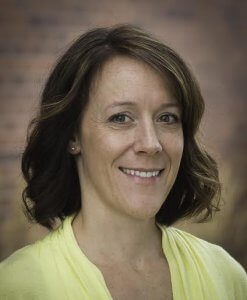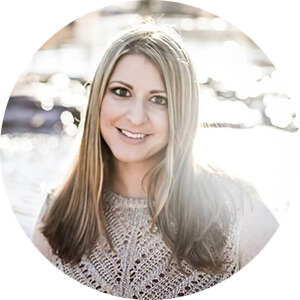Eating Disorder Meal Plans | Dish With A Dietitian

Clients frequently ask why I suggest working with a registered dietitian during recovery. There are questions that can come up during session that can be better answered by a dietitian rather than an eating disorder therapist, that’s the short answer. Dietitians are a key part of an eating disorder treatment team. Registered dietitians are educated about not only food but the way nutrition interacts with our unique bodies along with how nutrition can help improve our overall wellbeing. Eating disorder meal plans can feel more manageable with a dietitian who cares about your recovery.
Every month, New Directions Colorado will be featuring a local dietitian to help answer various questions you have. The goal of these blog posts is to familiarize yourself with local dietitians, have additional recovery resources and to ask questions in a format that may feel less intimidating before scheduling an in-person session with them. Let us move onto today’s guest dietitian!
Janelle Hunt, RD | Sollus Nutrition
Denver registered dietitian helps answer questions from clients who struggle with eating disorders and disordered eating.
What is the difference between a dietitian and a nutritionist?
A nutritionist’s qualifications are very different than that of a registered dietitian. Nutritionist isn’t a legally protected title. The title does not specify education, experience, or ongoing training. In fact, many states allow individuals to call themselves a nutritionist without having any form of education or training in the nutrition field. Dietitians are required to complete a 4 year nutrition degree, internship and pass a state exam in order to obtain the title “dietitian.”
I’ve heard “don’t count calories, don’t diet, don’t limit food groups”. How are meal plans by dietitians different? Aren’t they essentially telling you what to eat and when to eat?
A meal plan uses exchanges rather than calorie counting to specify what one should eat at a meal. For example, a lunch meal plan may be 2 starches, 3 protein, 2 fat, 1 veggie and one fruit which could mean someone has a turkey and cheese sandwich with carrots and an apple. I teach my clients what a realistic meal plan is and with quantities as a first step to help their body relearn what a normalized portion is.
Once they’ve followed a meal plan for a couple weeks we may begin to move to intuitive eating which means I’d still have them eat something every 3-4 hours/day, as this is what the body needs, but have them listen to hunger fullness cues more. This helps them to learn to eat when they’re starting to feel hunger cues and stop when they feel gentle fullness cue. The body has accurate cues to tell us exactly how much and what to eat, but majority of people have overridden these cues for years so the cues aren’t as present. We must relearn these cues.
It’s also important to eat every 3-4 hours, though we don’t need to eat at the exact times every day, because this helps our metabolism run fast and helps us feel more accurate hunger cues. I do believe that we can eat all food groups. Studies show that if someone is restricted from eating a specific food, they will crave it and likely binge on it, even if they never liked the food before, just because a rule was set around it.
What is a meal plan and how do you create one with a client?
I calculate how many calories someone needs based on their weight, height, age and weight goals and convert this into exchanges for each individual client. A meal plan uses exchanges, meaning food is divided into certain food groups and divided throughout the day to give balance. There are calculations that go into it but basically I’m trying to get someone to eat a balance of carbohydrates, protein and fat at each meal with a variety of snacks in between. This allows the blood sugar to remain stable throughout the day so we don’t have cravings or fall into binging patterns.
I want to work with a dietitian but am afraid my diet mentality will never go away. How do you work with a life-long dieter?
I often do not put a lifelong dieter on a meal plan as this can feel to some people like another diet. I instead do a lot of education on what normalized eating is along with accurate portions and education about food groups and then start working on intuitive eating. I do believe that everyone can be free of their diet mentality but one has to be willing to be guided to relearn their hunger fullness cues and start to eat according to them. The longer they do this, and realize their weight will be normalized, the more they can trust themselves and get rid of the diet mentality.
I struggle with time and don’t want to buy fancy spices I only will use for one recipe. Do you have a suggestion for a quick meal that has the nutrients I need, such as fat, carbohydrates and protein?
A lot of my clients have started to get meals from companies like Blue Apron as they are well rounded, help teach normalized portions and are easy to prepare. I also recommend googling “5 Ingredient Recipes” for easy items to cook. This gives ideas from sandwiches, pastas and salads to casseroles.
I give my clients lots of menu ideas as well based on if they have certain allergies or diet restrictions. We will meal plan together to come up with very specific items that can be made and eaten throughout the week. I don’t believe recipes need to be complex nor expensive in order to get good nutrition.
What do you like best about being a registered dietitian?
I love being able to watch clients learn to trust their body cues and get healthy again. Food is something we have to face everyday and for many it can be a nightmare to deal with. I love helping people come to peace with food and their body and learning to live life without constantly being obsessed about food.
Janelle’s Experience
Janelle Hunt is a Registered Dietitian and has specialized in the treatment of eating disorders for the past 14 years. She’s had ten years of experience working with a treatment team who provided partial hospitalization care to both women and men struggling with eating disorders at EDCare. She recognizes that food has become an enemy and a form of self-sabotage for so many, rather than to be used for enjoyment to fuel the body. She pushes her clients at a gentle but firm pace and guides them through recovery. She is truly passionate about her work with those who are struggling to come to peace with food and their body.
She completed her undergraduate degree at the University of Northern Colorado with a Bachelor of Science in Human Nutrition. She completed her internship at Ball Memorial Hospital followed by obtaining a Masters in Exercise Physiology and Nutrition at Colorado State University. She currently has her own private practice at Sollus Nutrition Therapy.
Creating Your Treatment Team
To find out more about adding Janelle to your eating disorder treatment team, check out Sollus Nutrition Therapy. Janelle Hunt can also be contacted via phone at 720-432-3612 or by email at huntjanelle@gmail.com

If you or someone you know is suffering from an eating disorder, contact an eating disorder therapist right away. Call 720-306-1631 to set up your free 30 minute consultation, where we can check in with what’s present for you and you may ask a trained eating disorder therapist any questions you might have. You may also learn more about eating disorder therapy offered by New Directions Colorado, here.
© Erica Faulhaber 2018 – This blog may be shared or reprinted as long as the information is unedited and the author bio, including contact information is printed along with the blog.

 Erica Faulhaber MA, NCC, LPC, CEDS, Certified EMDR Therapist and EMDR Consultant-In-Training. She is a therapist in Erie, Colorado who helps women, teens and tweens struggling with trying to be perfect all the time. New Directions Colorado, is a therapy practice that specializes in eating disorders/disordered eating, trauma and Eye Movement Desensitization and Reprocessing (EMDR).
Erica Faulhaber MA, NCC, LPC, CEDS, Certified EMDR Therapist and EMDR Consultant-In-Training. She is a therapist in Erie, Colorado who helps women, teens and tweens struggling with trying to be perfect all the time. New Directions Colorado, is a therapy practice that specializes in eating disorders/disordered eating, trauma and Eye Movement Desensitization and Reprocessing (EMDR).
Leave a Reply